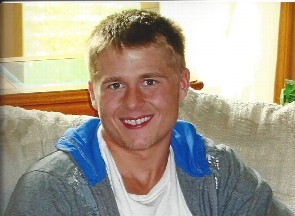
This donation is in loving memory of our dear son, brother, and friend, Brent, who battled mental illness most of his life. It is our sincere hope that this contribution will progress science to help understand and treat these diseases so that others' loved ones will not have to suffer like our Brent did.
Brent was a bright, intelligent, and outgoing young man. He had a zest for life and possessed a quick-witted sense of humor that always could bring a smile. He started to show symptoms of bipolar disorder in his early teen years during a time when his mother was battling a brain tumor. After his mother passed away from her battle with cancer, Brent began to cycle between mania and depression. He fell into a deep depression, which led to the bipolar diagnosis. The medicines he was prescribed by the doctors were heavily sedating and like so many, made him feel numb to the world. Medicine compliance was a challenge and during this time, he began to self-medicate, which further complicated his struggle.
He also suffered from untreated Attention Deficient Disorder, which would not be diagnosed until years later. The untreated ADD made learning very difficult and as a result, he experienced anxiety while in school. Despite these obstacles, he was able to attend college with some level of success.
Brent documented his struggle with mental illness as part of his therapy. Below are some excerpts:
During my junior year in college, I started to suffer from an undiagnosed form of acute schizoaffective disorder; a mental illness that left untreated entails delusions, psychosis, intense mood swings, indelible depression, severe anxiety, and disorganized and confused thought processes. This hardship impacted my schoolwork in a profound way. The disturbances started when I began to hear voices in my head one day while attending classes as usual. For an extended period, I did not realize that the voices were only in my head and I perceived external tormentors everywhere. I became increasingly paranoid and was often afraid to leave my apartment. As my thinking increasingly became disjointed and confused, I stopped attending classes. My quality of life suffered immensely. As I continued to descend into psychosis my situation only became more complicated. I was so preoccupied with my imagined persecution, so confused and disorganized, that I did not even have the wisdom or good sense to withdraw from classes. It was at this time that I encountered the first of many involuntary hospitalizations. Nothing seemed to help, and once I finally understood that I was hallucinating, I sank into an ever-deepening profound state of depression and I developed severe agoraphobia, an intense fear of going outside and being in public.
When Brent came home a few years ago, he was severely disabled due to his mental illness and was in need of significant help. With the support of his family, he worked diligently to find a good medicine regime and engaged in many hours of counseling. It was a long and painstaking journey, not without setbacks. With the help of the local regional healthcare hospital and outpatient services, Brent was able to manage his condition well enough to start attending the local community college and made the dean’s list with a 4.0 grade point average. He applied to and was accepted at the local branch of Indiana University so he could continue his pursuit of a psychology degree. It was his goal to help others who were suffering from mental health diseases. Our son and brother, who was lost to us trapped in his illness for many years, had returned. His was a story of redemption and perseverance.
Unfortunately, the nature of mental illness is unpredictable. Despite rebuilding his life and achieving personal and educational milestones, he succumbed to his disease. He passed away on June 15, 2015. We are so thankful for the time we were able to spend with Brent and we will miss him tremendously every day going forward. He had such a positive influence on us despite his struggles. Brent has been and always will be a bright spot in ours and so many other’s lives.
It was Brent’s goal in life to help those suffering from mental illness and we encourage your support to the Brain and Behavior Research Foundation to help realize his dream.
With love,
The Harshman Family


Get The Word Out
https://bbrfoundation.donordrive.com/campaign/BrentHarshman